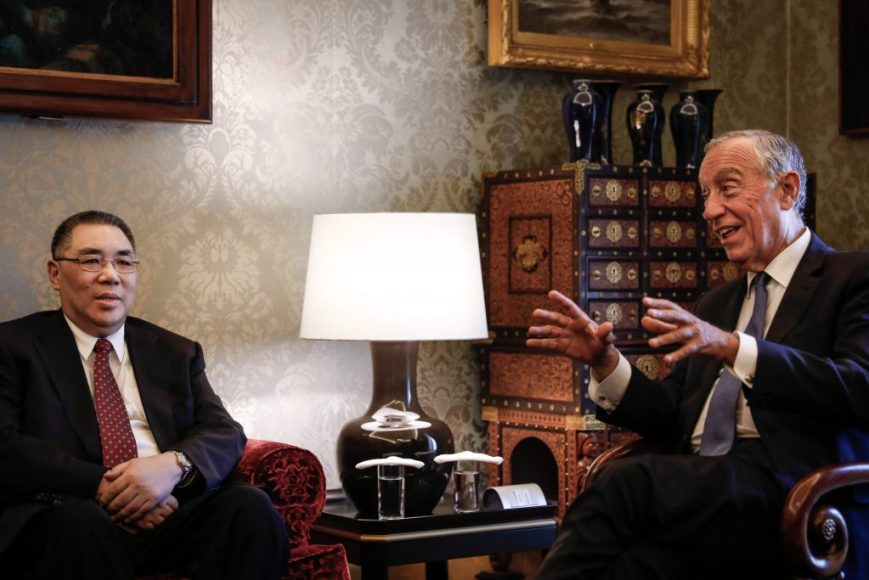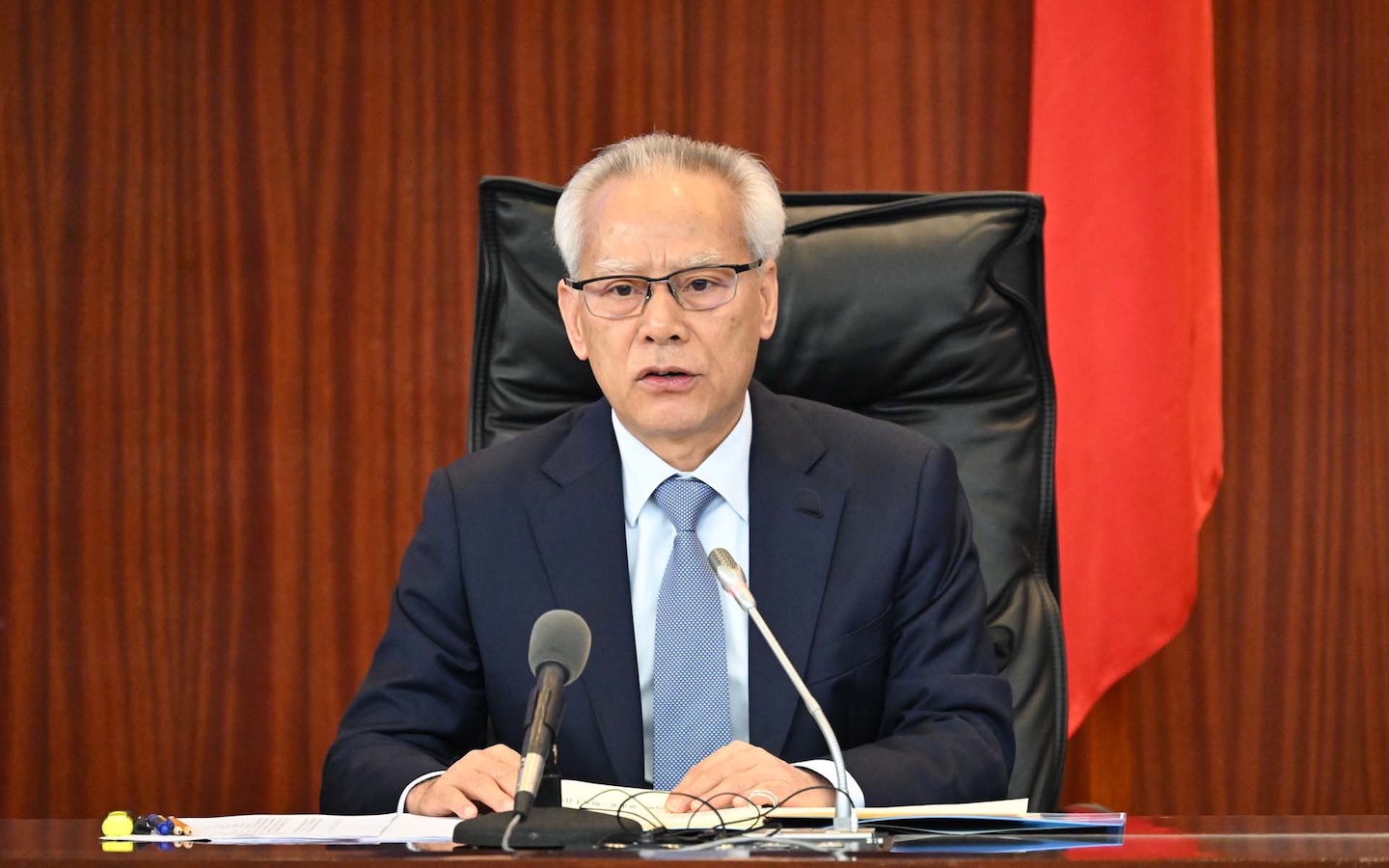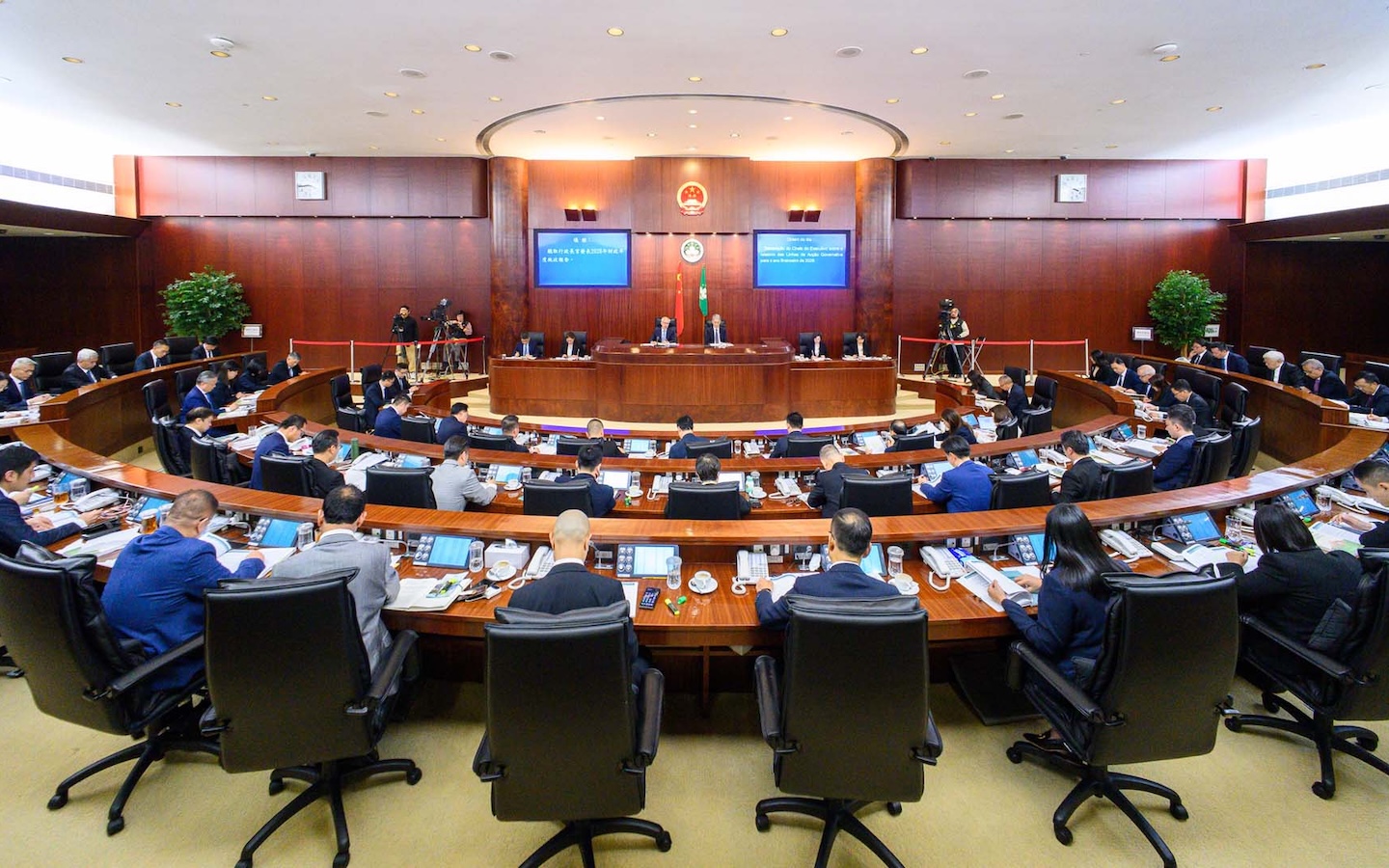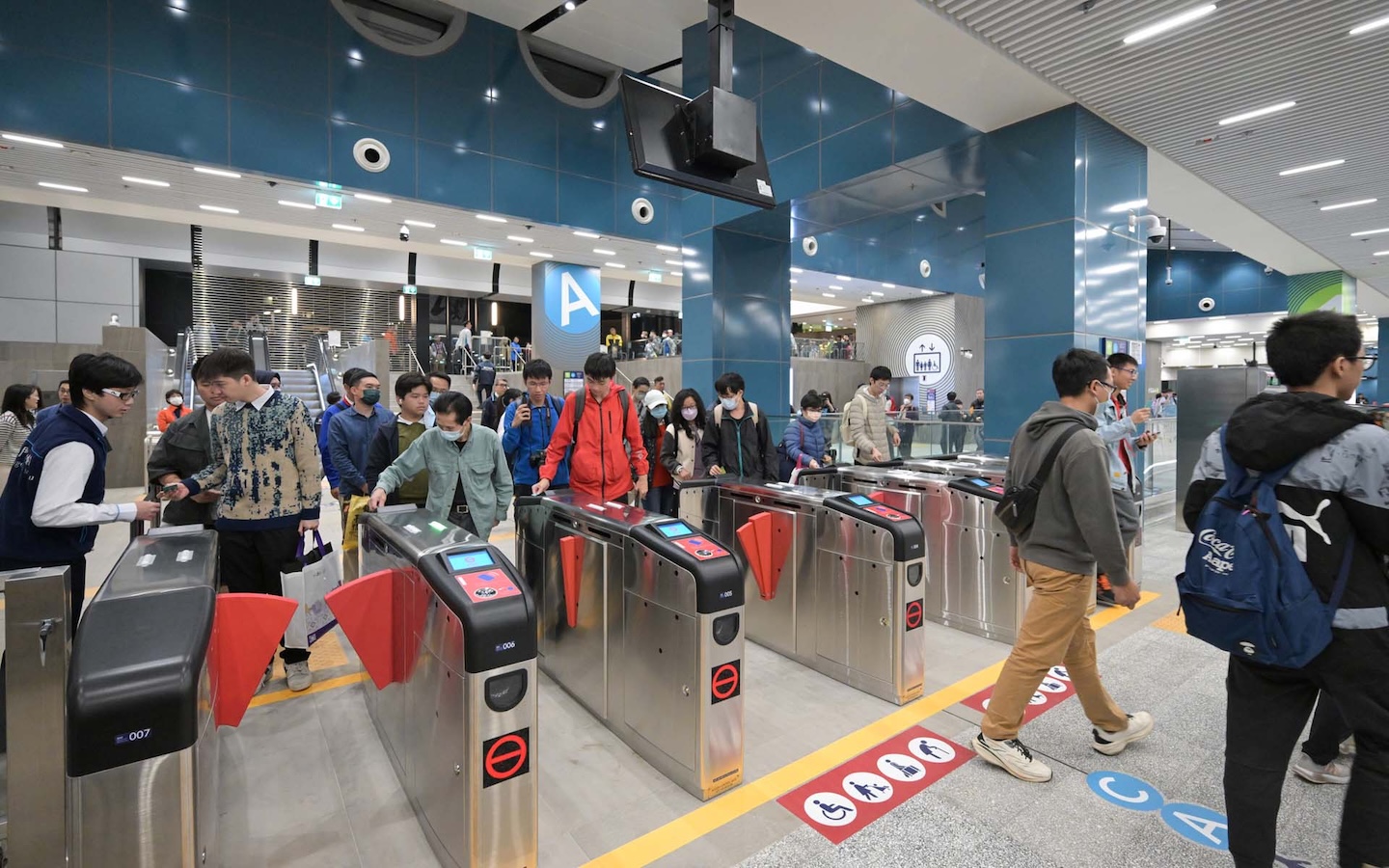PHOTOS Government Information Bureau and Lusa News Agency
Making his third and last official visit to Portugal, Macao Chief Executive Chui Sai On cemented his city’s role as a vital platform connecting China to the Portuguese-speaking world.
The landmark tour came in the wake of recent visits by the Chinese and Portuguese presidents to each other’s countries, and with an eye toward the future of bilateral ties, their reach in the Greater Bay Area, and the 20th anniversary of the SAR this December.
Over the Chief Executive Chui Sai On’s seven-day trip, 12–18 May, Chui met with Portuguese leaders in Lisbon, strengthening existing bonds in a number of areas, and was received in Porto as an honorary citizen.
On 13 May, Chui met with Portuguese President Marcelo Rebelo de Sousa, recently returned from an official visit to China that concluded in Macao, at Belém Palace in Lisbon.
Rebelo de Sousa characterised the relationship between China and Portugal, and between Macao and Portugal, as experiencing an “excellent period,” adding that he was glad to see that President Xi Jinping “highly values” Macao’s role in connecting China and the world’s Portuguese-speaking countries (PSC).
He emphasised that China is actively enhancing communication and cooperation with the PSC, promoting the development of the Portuguese language to the benefit of all PSC, not just Portugal. The Portuguese president underlined the significance of Macao’s efforts to preserve, strengthen and develop the Portuguese culture and language.
Sustainable development of the Portuguese language in Macao, he said, will enhance its links and cooperation in the fields of culture, society, economy, trade, science, technology, and tourism with the PSC.
Chui spoke to the “close friendship and historic ties” between Macao and Portugal, citing the Belt and Road Initiative (BRI) and Greater Bay Area (GBA) as opening up new opportunities for future cooperation.
Later that night at a photo exhibition entitled “The Successful Practice of the ‘One Country, Two Systems’ Principle in Macao,” Chui stressed that as a key BRI city, Macao has a good “foundation and potential for cooperation” with Portugal, reiterating that Macao and Portugal should “jointly grab” the BRI development opportunities.
The title of the exhibition, held in conjunction with a reception to commemorate the 20th anniversary of the establishment of the MSAR, echoed statements made by the Chief Executive in the runup to his Portuguese tour. There he cited the concept of ‘Macao people administering Macao’ and the high degree of autonomy enjoyed by the SAR as the basis of this success.
Around 230 people attended the reception, including members of Chui’s delegation, senior Portuguese government officials, representatives of Portugal’s parliament, judiciary, Lisbon City Hall, educational institutions, and the media.
Building a gateway
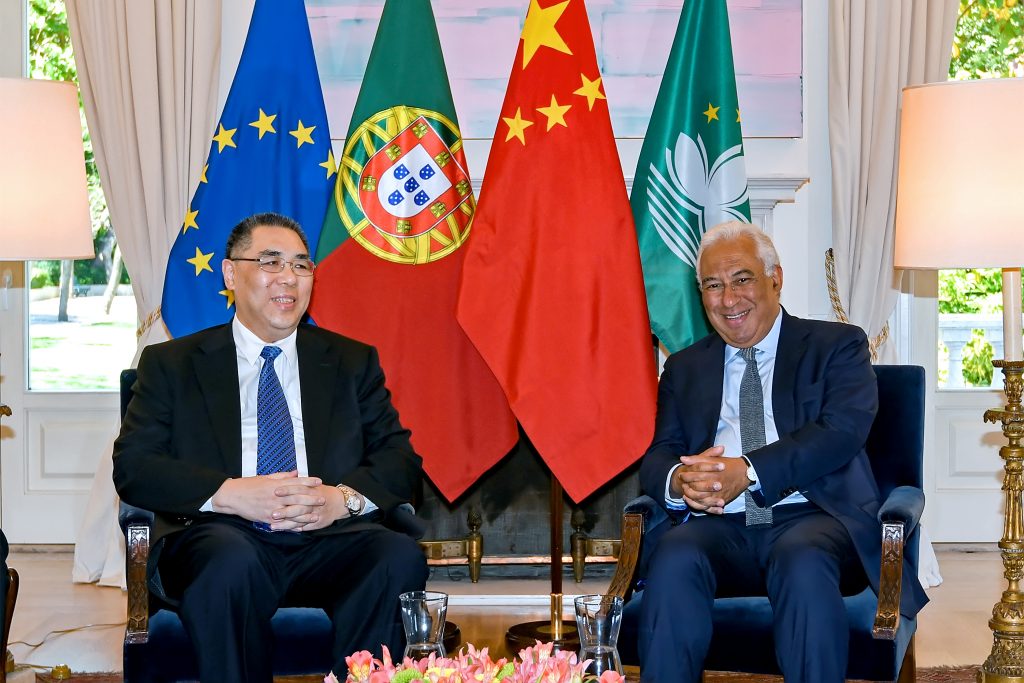
In a meeting with Portuguese Prime Minister António Costa the following day, 14 May, the two sides agreed to step up economic cooperation, “boosting mutual investment” to contribute to the “sustainable development” of their economies.
Chui cited support from Portugal as enhancing Macao’s efforts to create a base for training in the Portuguese language and tourism, particularly in relation to the BRI and GBA. Macao, he said, “possesses a complete system for the teaching of Portuguese, which serves as a base for the Portuguese language training in Asian regions.”
Tourism stands to benefit substantially from the visit. Agreements signed between Portugal’s Secretary of State for Tourism Ana Mendes Godinho and Macao’s Secretary for Social Affairs and Culture Alexis Tam Chon Weng aim to promote the joint development of training actions and dual-graduation programmes, as well as encouraging the reciprocal participation in workshops, seminars, conferences, meetings, colloquia, research, and other projects of common interest.
According to both sides, the programmes enabled by these agreements, together with other in the fields of education and training, may be open to students from the broader GBA, a region home to nearly 70 million people.
On the day of the signing, Godinho told Lusa News Agency that this agreement will lead to the creation of a Macao Institute for Tourism Studies (IFT) hub in Estoril, west of Lisbon. The hub will offer “human resources training in the area of tourism, mainly Asian human resources, and will have a space for training and articulation and development of internships here in Portugal as well, namely with Portuguese hotels.” This agreement, she added, will work “as a gateway to the Asian market.”
Common language, common purpose
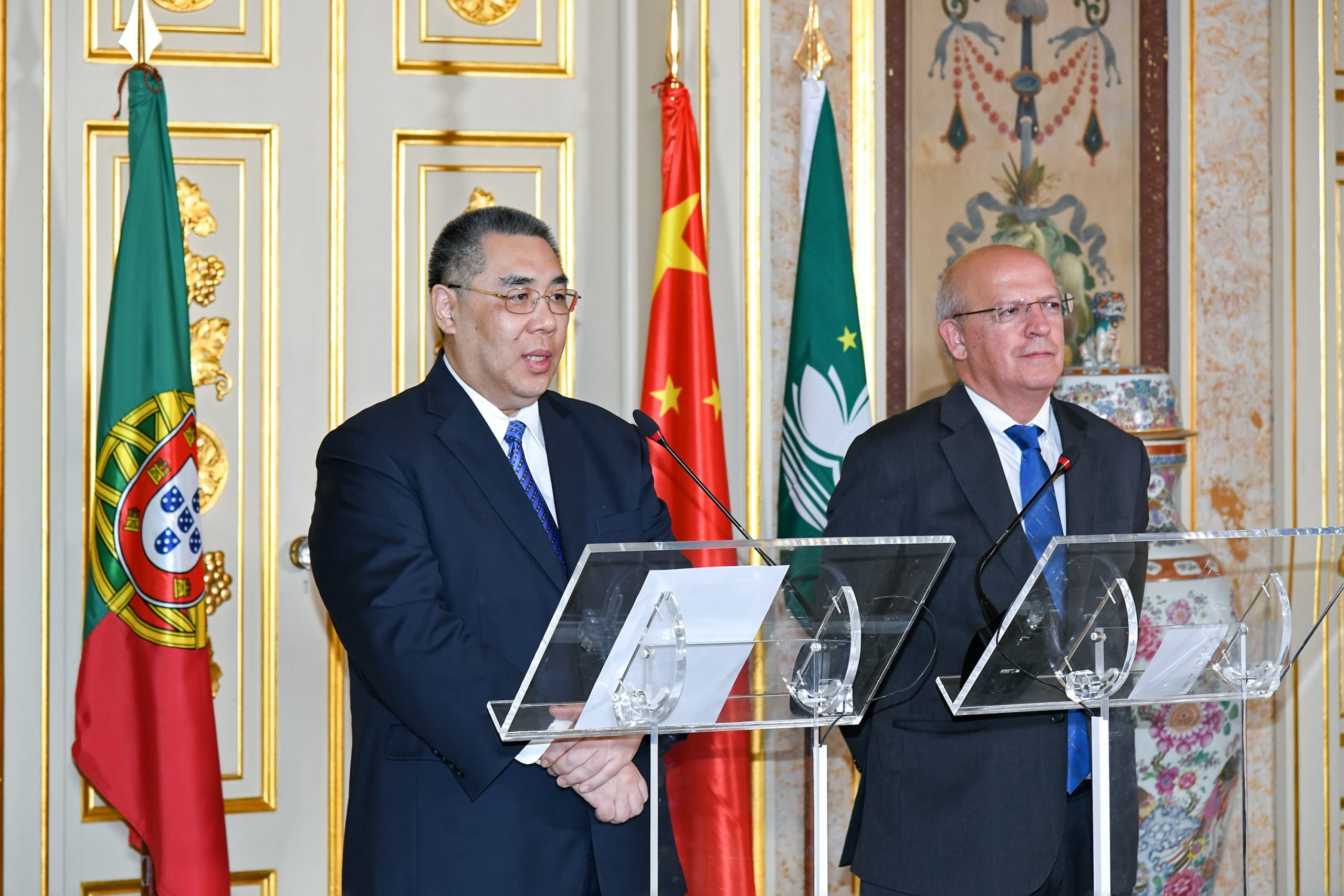
At the sixth meeting of the Macao-Portugal Joint Committee, co-chaired by the Chief Executive and Portuguese Minister for Foreign Affairs Augusto Santos Silva, discussion centred on economic relations between the two parties (with the relations between China, Portugal and the Portuguese-speaking countries in view) and relations in the areas of language, culture and education, considering Macao as a platform for disseminating the Portuguese language across Asia.
The meeting culminated with the signing of a memorandum of understanding (MoU) on the automatic reciprocal recognition of diplomas and academic degrees, along with a bilateral agreement on the surrender of fugitive offenders.
At the end of the Joint Committee, Chui told the press that trade last year between China and PSC reached US$147.3 billion, 13 times more than in 2003, when Forum Macao was established. Chui also said the Macao government would support Portuguese youth entrepreneurship projects involving Macao and other cities in the GBA.
Especially highlighted by Chui during the visit was the work of Portugal’s state with young entrepreneurs, with Macao aiming to reinforce the exchange in this area.
Speaking at a reception attended by the Portuguese Minister of Internal Administration Eduardo Cabrita, Chui praised the contribution of the Portuguese community and businessmen in the development of the territory, citing their joint efforts and the success of ‘one country, two systems’ in leading to “rapid economic growth” and “a continuous improvement of the well-being of the population.”
According to the Chief Executive, the MSAR government attaches “great value to cooperation relations” with Portugal, which is underlined by the reciprocal visits, agreements and cooperation projects that have been boosted since 2011, and which demonstrate the “good results” of this partnership.
“Since the establishment of the SAR 20 years ago, the government has given high importance to the social role of the Portuguese community, in respect and in the protection of their language, culture, religion, and customs,” he remarked. Chui praised the Portuguese community of Macao, especially Macao nationals, for boosting the role of communication and exchange of cultures, which has contributed to “the development of the city and historical progress.”
“The growing integration of the territory in China,” he added, should not be feared by the Portuguese people, and the community “must have even greater confidence in the prospects of Macao’s development.”
Rolling out the red carpet
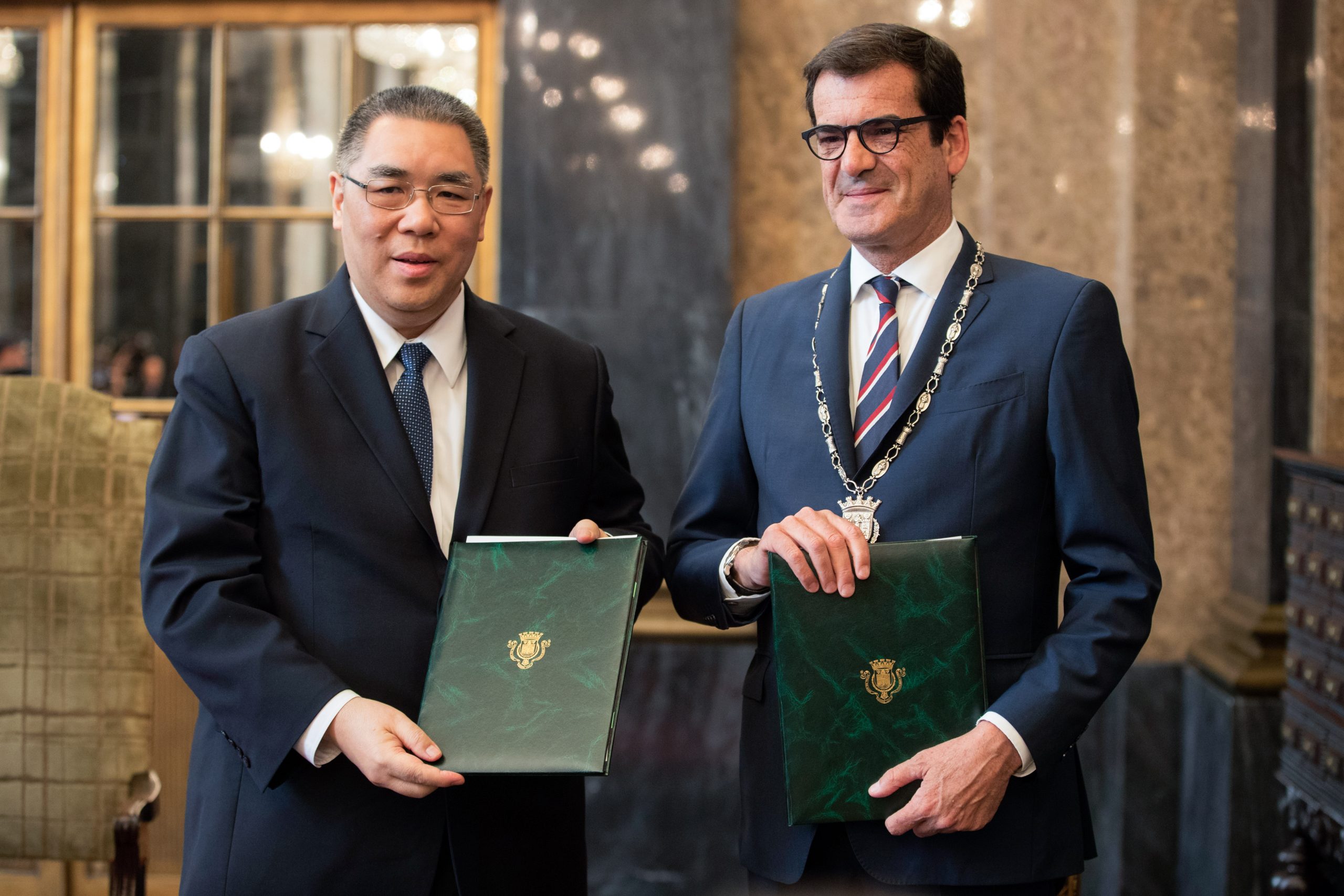
The visit ended 17 May in Porto as the City Hall, overlooking Avenida dos Aliados and the river Douro, rolled out the red carpet and a marching band to welcome the Chief Executive.
In a packed auditorium, Chui received the keys to the city from Mayor Rui Moreira, making him an honorary citizen – an honour, Chui said, he shared with the entirety of the people of Macao. The two dignitaries also signed a MoU on cooperation between the two cities.
Thus concluded Chief Executive Chui Sai On’s third official visit to Portugal – and his last. After two consecutive in office, his mandate will end at the end of the year and his successor will be inaugurated on 20 December, the 20th anniversary of the MSAR.
